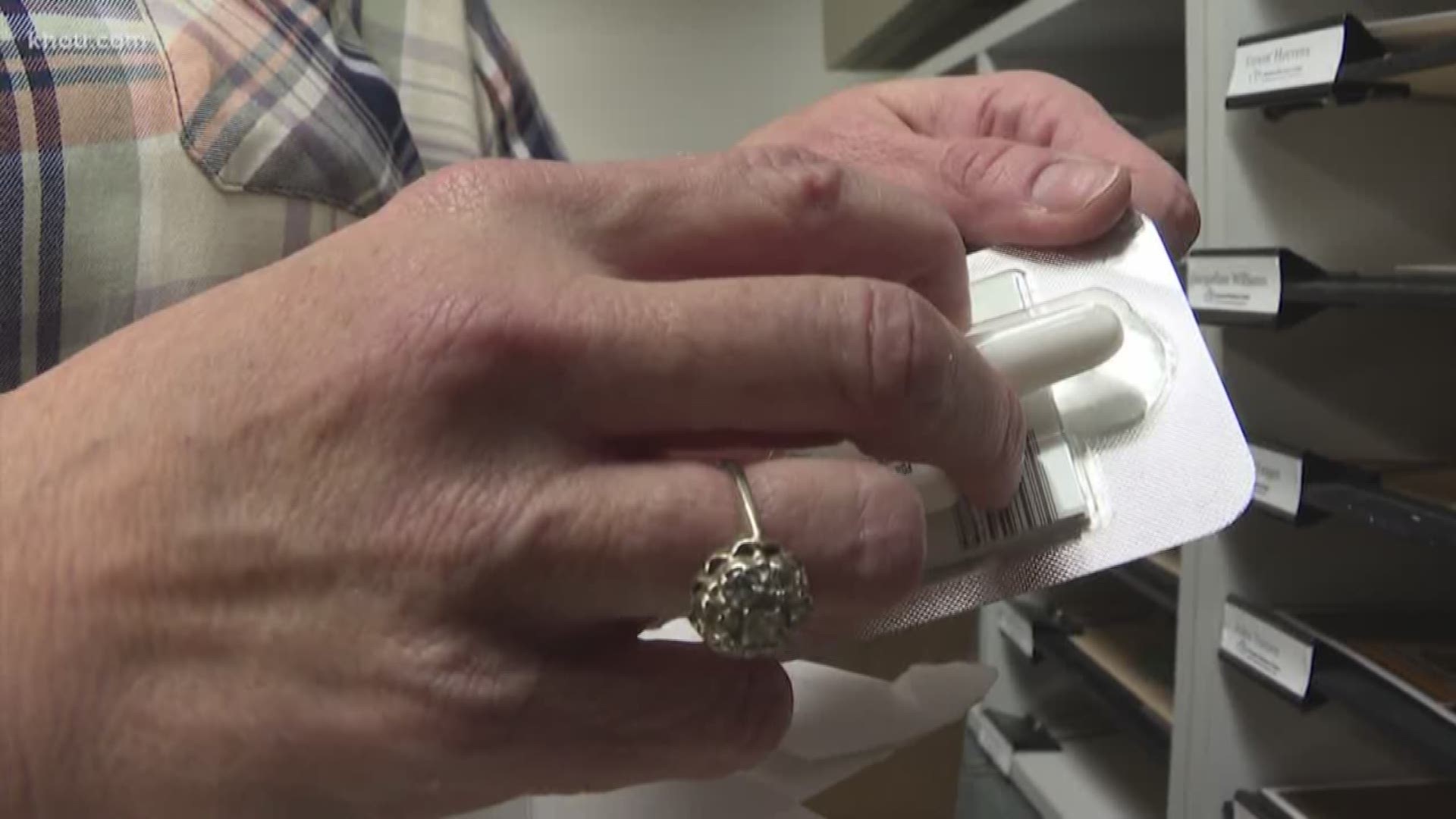HOUSTON — Harris County Public Health received more than $2 million in grant money from the CDC to address opioid overdoses.
According to the Harris County Institute of Forensic Sciences, in 2018, almost half of all drug overdose deaths in Harris County involved opioids, and drug overdose is the leading cause of accidental death in the county.
During a news conference on Tuesday morning, Dr. Umair Shah, executive director of HCPH, announced that the money from the grant would be used for multiple purposes, including:
- Collecting more data about opioid misuse and overdose to find out who is most at risk, and what areas of the county need more treatment facilities.
- Getting more people into treatment by increasing the number of healthcare providers who are trained to treat opioid addiction, including hiring more licensed substance abuse counselors for the Harris County Jail and purchasing more medications for the Jail's medication-assisted treatment program to help inmates decrease their reliance on opioids while in prison.
”It appears opioids has not led to that epidemic level in Harris County yet. We do not want to let it reach those levels," said Dr. Shah.
"We do not have the same issues as other areas of the county like the Northeast," said Sheriff Ed Gonzales. "We want to be proactive."
Sheriff Gonzalez said the Harris County Jail is the largest in the state, and the third-largest in the country. He said being able to treat people for their opioid use disorders will prevent them from committing more crimes, such as stealing to feed their drug habits.
Fewer crimes means less taxpayer money spent on putting those people through the criminal justice system.
It also could lead to fewer taxpayer dollars spent to save people from overdosing in the first place: costs that towns and hospitals inevitably take on as debt because they rarely get payment from people actively using.
"Intervention and prevention work," said Gonzalez. ”Incarceration is not our only tool and the only answer.”
The jail established medication-assisted treatment programs for inmates in 2017. Those programs help counsel inmates and wean them off of harmful opioids that lead to addiction.
”We want to be proactive and make sure that we don’t see that in our community, although, we do see growing signs that it is here and it is present," said Gonzalez.
The MAT program saved Damascus Wright, a former inmate who is approaching two years sober, after suffering from the grip of heroin and other prescription pills.
The program helped him transition into case management and recovery coaching with the Houston Recovery Center. He is now approaching two years sober.
”It gave me my life back," Wright said of the MAT program and the Houston Recovery Center. ”The worst time in recovery is better than my best time getting high.“
Harris County is the only county in the country to be awarded the grant to that type of entity. Other states received money to both states and cities or counties. Harris County Public Health is the only agency in Texas to receive the grant.
Shah said that even though the rates in Harris County may not be as high as other parts of the U.S., the sheer size of Harris County -- 4.7 million people and growing -- brings overdose numbers to staggering levels.
Officials said that opioid misuse is not considered "epidemic" yet, but they hope to prevent it from ever reaching that status.
Dr. Shah said there are not enough healthcare providers trained in opioid abuse treatment for the number of people in the county.
The county will also use that money to train more healthcare providers in opioid abuse treatment.
ALSO POPULAR ON KHOU.COM

